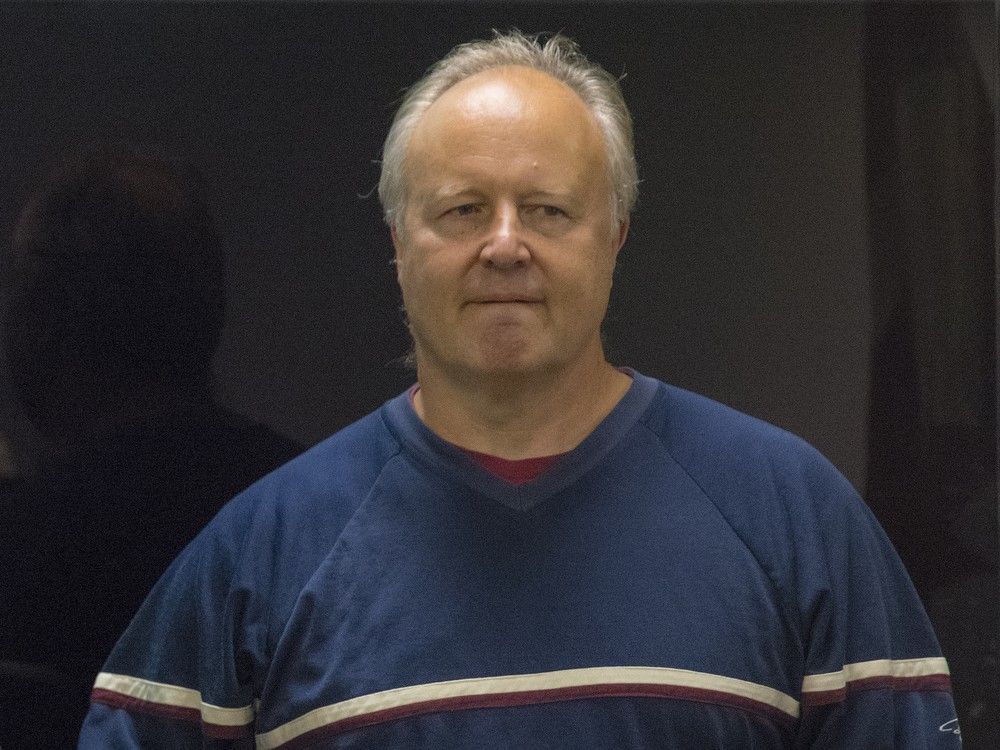He turned himself into a sort of journalistic encyclopedia — one that never stopped generating fresh entries, even in his dotage
Published Oct 19, 2024 • Last updated 0 minutes ago • 5 minute read

The sheer length of Robert (Bob) Fulford’s journalistic career — which began in 1948, at a time when Canada was led by William Lyon Mackenzie King and electric typewriters were still something of a newsroom novelty — makes him a difficult figure to eulogize. Even most veterans of Canadian journalism aren’t old enough to remember the man as anything but an elder statesman of their profession.
Advertisement 2
THIS CONTENT IS RESERVED FOR SUBSCRIBERS
Enjoy the latest local, national and international news.
- Exclusive articles by Conrad Black, Barbara Kay and others. Plus, special edition NP Platformed and First Reading newsletters and virtual events.
- Unlimited online access to National Post and 15 news sites with one account.
- National Post ePaper, an electronic replica of the print edition to view on any device, share and comment on.
- Daily puzzles including the New York Times Crossword.
- Support local journalism.
SUBSCRIBE FOR MORE ARTICLES
Enjoy the latest local, national and international news.
- Exclusive articles by Conrad Black, Barbara Kay and others. Plus, special edition NP Platformed and First Reading newsletters and virtual events.
- Unlimited online access to National Post and 15 news sites with one account.
- National Post ePaper, an electronic replica of the print edition to view on any device, share and comment on.
- Daily puzzles including the New York Times Crossword.
- Support local journalism.
REGISTER / SIGN IN TO UNLOCK MORE ARTICLES
Create an account or sign in to continue with your reading experience.
- Access articles from across Canada with one account.
- Share your thoughts and join the conversation in the comments.
- Enjoy additional articles per month.
- Get email updates from your favourite authors.
THIS ARTICLE IS FREE TO READ REGISTER TO UNLOCK.
Create an account or sign in to continue with your reading experience.
- Access articles from across Canada with one account
- Share your thoughts and join the conversation in the comments
- Enjoy additional articles per month
- Get email updates from your favourite authors
Article content
That includes me. I began editing Bob in the late 1990s, first as a National Post copy editor, and then, later on, in my capacity as op-ed editor. These are old memories extending back into the earliest days of my journalistic career. And so it’s rather astonishing to think that at the time I began editing Bob’s first National Post columns in 1998, the man had already been writing (and broadcasting) for half a century — and would continue doing so, with great skill and flair, until 2019.
For rank-and-file newspaper editors, the daily churn of copy has a dehumanizing effect on the way we treat authors. Like George Jonas, Rex Murphy, Christie Blatchford and the other departed luminaries I was privileged to edit, Bob existed in my world primarily as recurring bullet-point sked items, such as, say, “FULFORD on cabinet shakeup, 850 words. Hold for TO edition update.”
As with the other columnists, he filed his copy by email. And while I probably edited at least 400 of his columns during my Post career, I rarely spoke to him. In part, this is because he was such a seasoned professional when it came to hitting deadlines and getting his facts right. When I picked up the phone to call a columnist, it was usually because he or she had screwed up. In Bob’s case, I’m not sure I even knew his phone number.
By signing up you consent to receive the above newsletter from Postmedia Network Inc.
Article content
Advertisement 3
Article content
For someone who’d enjoyed such a long and storied career, Bob tended to avoid memory lane in his written work. Indeed, he generally abjured the vertical pronoun altogether. This old-school approach, a holdover from his salad days in the early Cold War era, made him something of a rarity among the more autobiographically inclined columnists with whom he shared the Saturday op-ed pages. (These included Conrad Black, who regularly dedicated whole columns to his legal travails; Jonas, who regaled readers with stories about his early days in communist Hungary and romantic adventures here in Canada; and Blatchford, who, bless the woman, was so utterly confessional as to provide readers with updates on her dog’s bathroom habits.) During our occasional meetings, I’d urge Bob to open up more to his readers. But for the most part, that just wasn’t his style.
If you’re hoping I’ll reveal the Fulfordian secret to keeping one’s writing marbles into old age, well past the expiry date of most opinion columnists, well, I have a theory — one that dawned on me during a fancy dinner party that my wife and I attended at his apartment.
Advertisement 4
Article content
I will say that I’m not used to being the dummy at such soirees. But at this particular gathering, that was very much the case. Bob’s other guests were glittering specimens from the world of arts and academia, several of whom began carrying on with great enthusiasm about the recherche museum exhibits and vernissages they’d recently attended during their jaunts to New York and the continent.
The references were all gibberish to me, but not to Bob or his equally cultured wife Geraldine. Pressed by his most voluble guest to offer his opinion on some acclaimed modern artist, Bob held forth with wit and, as I gauged from informed reactions, insight. Then he did the same in regard to some modern dance troupe. And a groundbreaking exhibit at Toronto’s Gardiner ceramics museum involving a set of ancient salad bowls (or some such). Oh, and that three-hour subtitled film from Slovenia (or possibly Slovakia — one of those) at TIFF. He and Geraldine had enjoyed it so much they’d seen it a second time.
On and on the evening went like this, as in some art-house game show whose contestants rack up perfect scores. Those of you lucky enough to have met Bob and Geraldine will intuit (correctly) that none of their dinner-party commentary was offered in a didactic or pompous spirit. They had (mistakenly, to my mind) let their guests pick the topics, and had offered their opinions only by way of response. I’m guessing the hosts would have been equally happy to discuss “Bee Movie,” the latest episode of “Lost” or the Blue Jays’ pitching woes had I been quicker to raise these topics once the appetizers were in front of us.
Advertisement 5
Article content
What made the whole scene more impressive — almost eerily so — was that I knew for a fact that Bob hadn’t written about any of these subjects for the Post, either for my own op-ed pages or for the newspaper’s arts section. He was merely riffing casually on the surplus expertise he’d acquired recreationally.
And here, I think, we might be getting close to some kind of explanation for Bob’s extraordinary career.
Many columnists exhibit the skill (if that is the right word) of convincing their audiences that they know far more about a particular subject than they actually do. “Senate reform? Equalization? The Sykes–Picot Agreement? Mummenschanz? Here, let me tell you what to think …” As a result — and here, I write from experience — the columnist always feels like something of a fraud. But in Bob’s case, the conceit that readers were getting but a mere glimpse of a much greater body of information was actually true. Having covered the worlds of sport, arts, politics and foreign affairs for seven decades, the man turned himself into a sort of journalistic encyclopedia — one that never stopped generating fresh entries, even in his dotage.
Advertisement 6
Article content
Put another way, the man seems to have never stopped learning. None of us at the Post, past or present, are likely to ever match the extraordinary record of this true iron man of Canadian arts and letters. But that shouldn’t prevent us from finding inspiration in the inexhaustible curiosity about the world that marked his extraordinary career from start to finish.
National Post
Jonathan Kay is an editor of Quillette, and a former managing editor of the National Post.
Recommended from Editorial
-

Robert Fulford, renowned journalist and longtime National Post columnist, dead at 92
-

Jonathan Kay: My life at the National Post, and why I'll miss it
Article content
.png)
 2 hours ago
7
2 hours ago
7




































 Bengali (BD) ·
Bengali (BD) ·  English (US) ·
English (US) ·